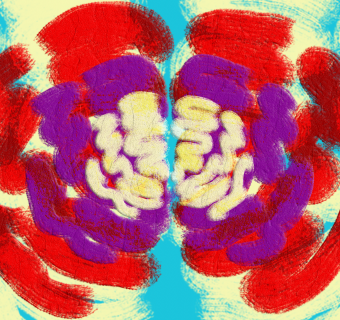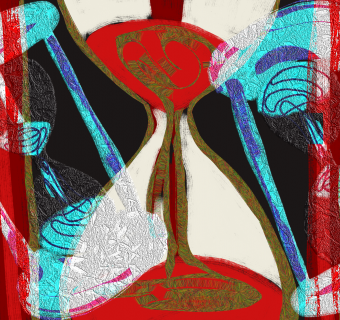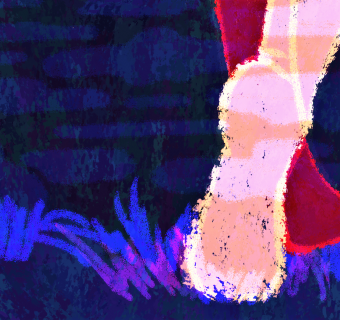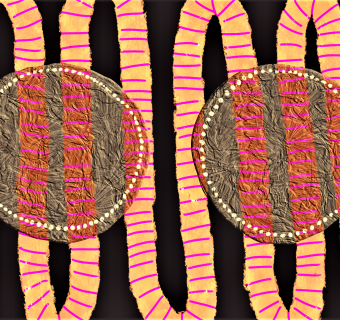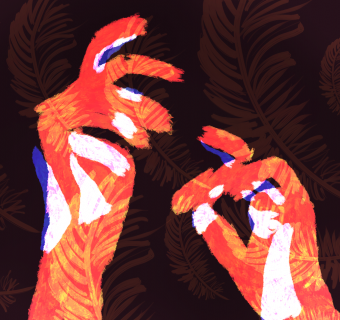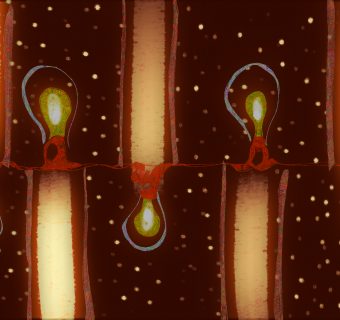Each one's life represents a road toward oneself, an attempt at such a road, the intimation of a path. No one has ever been entirely and completely oneself. Yet each one strives to become that.
Each one carries the vestiges of one’s birth — the slime and eggshells of one’s primeval past — with one to the end of one’s days. Some never become human, remaining frogs, lizards, and ants. Some are human above the waist, fish below. We all share the same origin, but each of us strives toward our own destiny. We can understand one another, but each of us is able to interpret oneself to oneself alone.
----- Hermann Hesse, Demian
I especially enjoy writing my own journals and reading other people’s. I want to know more about others and also myself, almost excessively. Reading others’ journals is like peeling back layers of eggshells, exclaiming excitedly: “LOOK! There is a human being like that!”
Writing a journal is a process of disclosing the self, while reading a journal is observing the process of others disclosing themselves. The journal can reveal, question, converse with, and also comfort oneself to some extent. The person on the pages of a journal is both the familiar self and a stranger, all at once. It is easy to interpret this “strangeness” as caused by an inevitable change in one's identity over time: when I am ten years older than I am now, I will find my past self to have been a weird one—“what was going on in her brain back then?” the older me would probably ask. But this particular sense of disconnect is not what I meant—the strangeness of a past self will occur in the future, but in the present, identity already contains a certain strangeness due to the fact that we are always representing ourselves, even to ourselves.
It took me a while to figure out that I cannot achieve the realness I desire from representations like words. It is not that words are not “real.” It is just that I want words and texts to express exactly what I thought and who I was at a particular moment in time, but they always fail. And I wonder, is it because I am not adept or skilled enough? Is it because there is an intrinsic gap between representation and life? It took me another little while to figure out it is partly because the self is not one-dimensional; rather, it is mostly reactionary, momentary, and fragmentary. How difficult it is to capture the self in representations such as texts, which mark only singular fragments of time.
I’m compelled not only to read, but also to consider the complete worldview of others, painfully seeing the crack that puts my world at crisis, and losing the illusion of its sufficiency.
I have mixed feelings about writing journals. Yes, I’ve said that I love writing journals, and I do—but it’s also like I’m a chick with remnants of eggshells and slime, and writing journals is shaking those vestiges off my body so that I can become free. When I journal, I no longer need to store that many things in my memory. On the other hand, those eggshells and slime also contain the most precious thing for me—they are fragments of myself and my memories—they contain conversations with friends and families and strangers, and they contain the everydayness of one’s life, etc. In this sense, writing journals is a way for me to materialize these moments, or better: to realize these moments, again and again.
Reading others’ journals is another story. Four years ago, I discovered a forum where people share their essays and journals. Users create a post and then reply to themselves in threads beneath it. Some of them wrote very brief non sequiturs (without punctuation), such as: “I felt sad I had soy milk and bread for breakfast I ran into my mentor the sky was beautiful I wanted to cry.” Some of them wrote longer paragraphs about their thoughts, conversations they had with their friends or professors, arguments with their parents, political views. I love reading both.
Weirdly and almost masochistically, I “like” posts from writers that have drastically different views from my own, and not for the purpose of laughing at or refuting them. I don’t enjoy reading them—so I don’t like them in the usual sense. But I do spend more time on them than on more enjoyable things, because while reading these journals, there is this forced dislocation that drags me out of my lifeworld. I’m compelled not only to read, but also to consider the complete worldview of others, painfully seeing the crack that puts my world at crisis, and losing the illusion of its sufficiency. It is not to say their worlds are better than mine, or more ethical than mine, or even ethical at all. But they make total sense when you are immersed in them.
This poses the question: to what extent should we push ourselves to understand those who have radically different commitments from ourselves? In a digital anthropology class we touched upon this question, but can hardly give a definite answer. If anthropology aims to cross the boundary of the “self”-world and enter into a radically different world of others, then should it attempt to understand the other? And then, does understanding mean agreement? Or can understanding happen without agreement?




